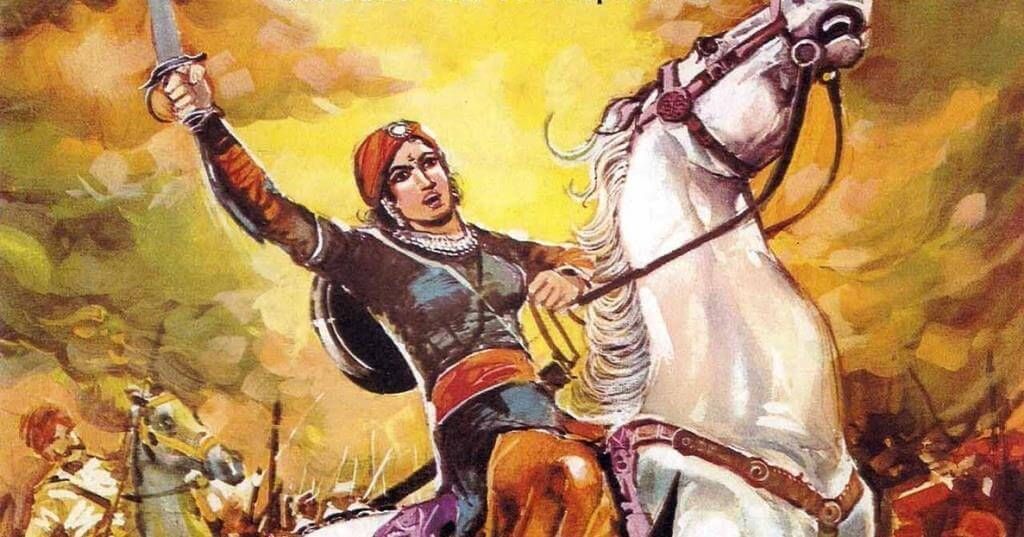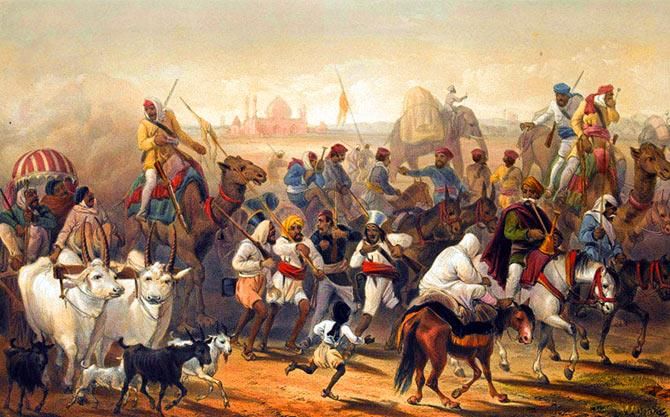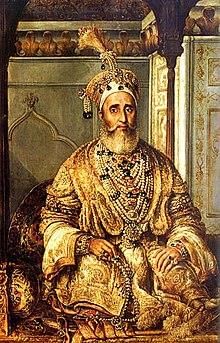NCERT Solutions for Class 8 History Chapter 5 - When People Rebel
Let's Recall
Q1. What was the demand of Rani Lakshmibai of Jhansi that was refused by the British?
 Rani Lakshmi Bai
Rani Lakshmi Bai
Ans: Rani Lakshmibai of Jhansi demanded that the British East India Company recognise her adopted son as the rightful heir to the throne after her husband's death. However, the British refused this request.
- The British did not accept her adopted son as the ruler of Jhansi.
- This refusal was based on Lord Dalhousie's policy known as the Doctrine of Lapse.
- According to this doctrine, if an Indian ruler died without a male heir, their kingdom would be annexed by the British.
Q2. What did the British do to protect the interests of those who converted to Christianity?
Ans: In 1850, a new law was enacted to facilitate conversions to Christianity. This law granted Indians who converted the right to inherit their ancestors' property. The British implemented various measures to safeguard the interests of these converts, including:
- Legal recognition of property rights for converts.
- Support for Christian missionaries to operate freely.
- Promotion of English-language education.
These efforts aimed to protect the rights of those who embraced Christianity, although they also led to concerns among many Indians about the erosion of their religion and traditional customs.
Q3. What objections did the sepoys have to the new cartridges that they were asked to use?
Ans: The sepoys had several objections to the new cartridges:
- They suspected that the cartridges were greased with cow and pig fat.
- This was offensive to both Hindu and Muslim sepoys.
- To use the cartridges, soldiers had to bite them open, which conflicted with Hindu beliefs about cows being sacred and Muslim views of pigs as unclean.
- Many sepoys perceived this as a deliberate attempt by the British to disrespect their religions.
Q4. How did the last Mughal emperor live the last years of his life?
Ans: After the death of Aurangzeb, the Mughal emperors lost their real power, becoming largely symbolic rulers. The last Mughal emperor, Bahadur Shah Zafar, played a significant role in the 1857 uprising when rebels declared him their leader.
- After the British suppressed the rebellion, Zafar was tried and sentenced to life imprisonment.
- He was blinded, and his sons were killed.
- In October 1858, Zafar and his wife, Begum Zinat Mahal, were exiled to Rangoon.
- Zafar died in prison in November 1862.
Let's Discuss
Q5. What could be the reasons for the confidence of the British rulers about their position in India before May 1857?
 Revolt of 1857
Revolt of 1857
Ans: The confidence of the British rulers in India before May 1857 stemmed from several factors:
- The power of Nawabs and Rajas diminished significantly as British officials curtailed their authority.
- Between 1757 and 1857, the British East India Company effectively controlled Indian states through political, economic, and diplomatic means, often avoiding military action.
- While there were minor revolts before 1857, they were localised and swiftly suppressed.
- The Company weakened Indian rulers by dissolving their armies, seizing their lands, and reducing their influence
- They also worked to dismantle the Mughal dynasty, removing the emperor's name from currency and declaring Bahadur Shah Zafar the last Mughal ruler.
Q6. What impact did Bahadur Shah Zafar’s support to the rebellion have on the people and the ruling families?
 Bahadur Shah Zafar
Bahadur Shah Zafar
Ans: The rebels aimed to overthrow the East India Company, but they struggled to find a leader. Bahadur Shah Zafar accepted the role, urging Indian rulers to unite against the British.
- Bahadur Shah Zafar’s support gave legitimacy to the rebellion and united various groups.
- Nawabs, Rajas, zamindars, and both Hindu and Muslim leaders joined the fight.
- Key locations like Delhi, Kanpur, and Lucknow saw soldiers mutiny against the British.
- His leadership inspired local rulers like Nana Saheb, Rani Lakshmibai, and Birjis Qadr.
- Many smaller rulers attempted to reclaim territories under Mughal authority.
- The British underestimated the rebellion, thinking it would fade away.
- Resistance continued in places like Awadh, strengthening anti-British sentiments.
Q7. How did the British succeed in securing the submission of the rebel landowners of Awadh?
Ans: The British faced several challenges during the uprising in Awadh, where local landlords led the villagers in revolt. To secure the submission of these rebel landowners, the British implemented a two-part strategy:
- Punishment: They executed and tried rebel leaders to deter future resistance.
- Incentives: The British sought to regain trust by offering rewards to loyal landowners, ensuring the protection of their traditional land rights.
Additionally, rebels who surrendered and did not harm British citizens were promised:
- Safety: Assurance of personal safety.
- Respect: A commitment to honour their land claims and rights.
Q8. In what ways did the British change their policies as a result of the rebellion of 1857?
Ans: After the 1857 rebellion, British policies in India underwent significant changes:
- Crown Control: In 1858, the British Crown assumed direct control from the East India Company.
- Doctrine of Lapse: This policy was abolished, allowing rulers to adopt heirs and retain their thrones.
- Military Reforms: The number of Indian soldiers in the army was reduced, with senior positions reserved for Europeans.
- Land Rights: Protection was granted to landlords and zamindars regarding their land rights.
- Religious Assurance: The British committed to respecting Indian religious and social practices, ensuring local customs were honoured.
These changes marked the beginning of a new phase in British rule in India.
|
69 videos|431 docs|46 tests
|
FAQs on NCERT Solutions for Class 8 History Chapter 5 - When People Rebel
| 1. What were the main reasons for the revolt of 1857 in India? |  |
| 2. How did the revolt of 1857 affect Indian society? |  |
| 3. Who were some key leaders of the revolt of 1857? |  |
| 4. What role did the sepoys play in the revolt of 1857? |  |
| 5. What were the consequences of the revolt of 1857 for British rule in India? |  |

















